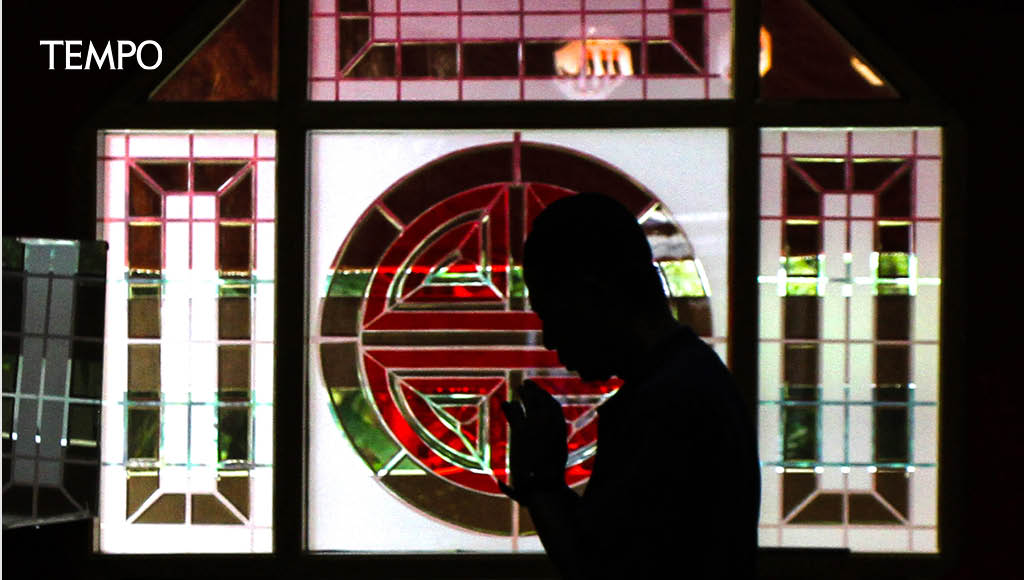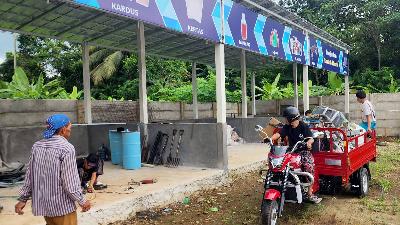Mosques for Everyone
Friday, March 28, 2025
A number of mosques are fostering inclusivity amid diversity, opening their doors to people of different backgrounds.
arsip tempo : 174683908720.

AN open mosque is an oasis in the desert of exclusivity that seems to have been spreading over the last few decades. Mosques like this not only become houses of worship for building a bond with God but also places to embrace others. Mosques thus serve as centers for cultural and intellectual development benefiting society.
One practice of inclusive mosques is promoting equity. Differences in background such as gender, race, ethnicity or physical ability, and even religion, are no longer an obstacle for mosques to provide a service.
Seven mosques featured in the Tempo—three in Tempo English—special report this week convey this spirit. In Jogokariyan Mosque, Yogyakarta, for example, elderly people are given free health checkups. Meanwhile, the Al-Falah Great Mosque in Sragen, Central Java, fosters dozens of micro, small, and medium enterprises. The Nurul Huda Mosque in Nimbokrang, Jayapura, Papua, opens its doors for activities by non-Muslims.
At a time when people’s religious practices prioritize themselves and their immediate associates, their presence provides hope that mosques can become places that are welcoming to everyone. They care about older people, children, women, people with disabilities, and other vulnerable groups. These mosques, which are usually open 24 hours a day, embrace all groups.
Inclusive mosques even embrace women and ethnic minorities. They are open for discussions about sensitive issues such as racism or recognition of lesbian, gay, bisexual and transgender people. They do not shy away from discussing standard doctrines that have long been seen as truth.
According to the Ministry of Religious Affairs’ Mosque Information System Site, there are 690,510 mosques and musallah, or prayer houses, throughout Indonesia. At the beginning of 2024, Religious Affairs Ministry figures showed that only 3 percent of mosques in Indonesia were friendly to children and people with disabilities. However, this number does not include mosques that care for the poor or for people who are travelling, or the environmentally friendly mosques that are beginning to appear. But even if these are included, the figure is not really significant.
The history of Islam has examples of inclusive mosque practices. Prophet Muhammad, for example, invited the Christians of Najran to worship at Nabawi Mosque. He also ordered the destruction of mosques suspected of trying to divide Muslims.
In 1975, the Risalatul Mosque Conference in Mecca decreed that mosques were not simply places for worship but also centers for education, social and culture. This way, inclusivity can advance human civilization.
But the fact is that many mosques have failed to become centers of civilization. They are simply a place to praise God, not to exchange ideas. Mosques are filled with spiritual people with closed minds who ignore new ideas. And frequently, these groups spread radical ideas that lead to intolerance and violence. They promote hateful teachings, discriminate against minorities, and oppose women’s leadership.
Exclusive mosques provide services only to those in agreement with mosque authorities. And in a number of places, mosques close their doors to travelers who arrive late at night—something that rarely happened in the past.
Mosques should be managed by local communities. A mosque that is built and run by local residents will reflect local culture. The state should not only facilitate the construction of as many mosques as possible but also preserve their localities and values. The locality of a mosque is reflected in the activities that happen in it and also in architecture that does not always include huge domes and high towers.
Inclusive mosques open to dialogue and exchanges of ideas will be responsive to social changes and the challenges of the age.











